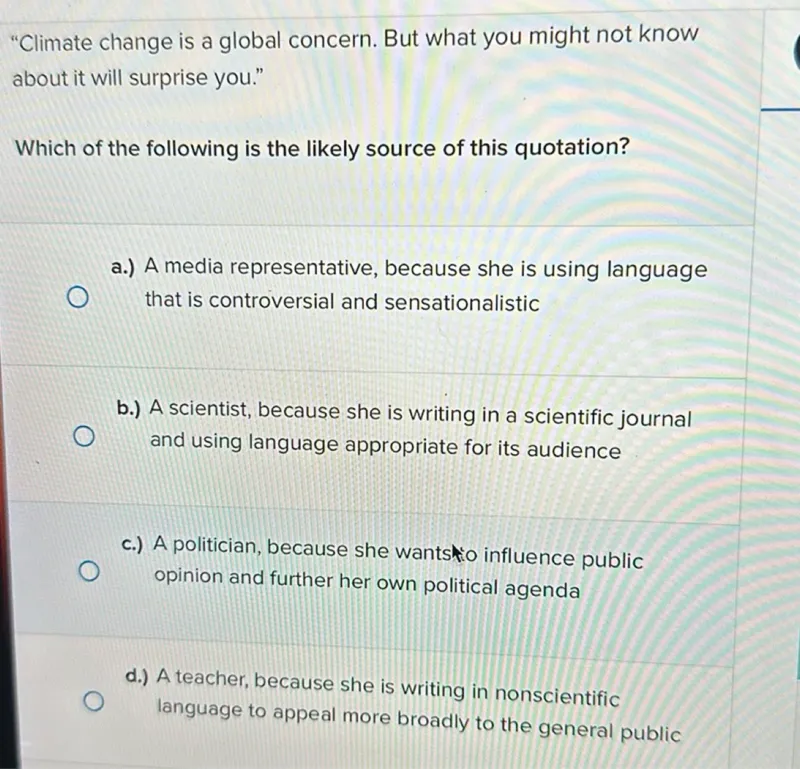Questions: "Climate change is a global concern. But what you might not know about it will surprise you." Which of the following is the likely source of this quotation? a.) A media representative, because she is using language that is controversial and sensationalistic b.) A scientist, because she is writing in a scientific journal and using language appropriate for its audience c.) A politician, because she wantstio influence public opinion and further her own political agenda d.) A teacher, because she is writing in nonscientific language to appeal more broadly to the general public

Transcript text: "Climate change is a global concern. But what you might not know about it will surprise you."
Which of the following is the likely source of this quotation?
a.) A media representative, because she is using language
that is controversial and sensationalistic
b.) A scientist, because she is writing in a scientific journal
and using language appropriate for its audience
c.) A politician, because she wantstio influence public opinion and further her own political agenda
d.) A teacher, because she is writing in nonscientific language to appeal more broadly to the general public





